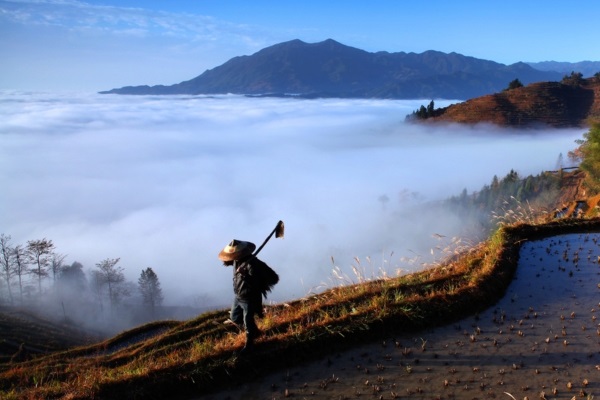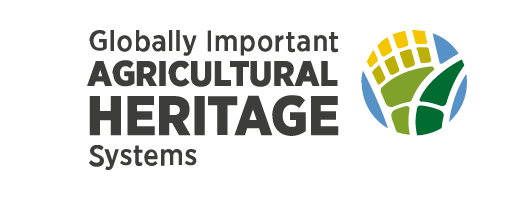Agricultural Systems in Jable and Volcanic Sands in Lanzarote Island, Spain
GIAHS since 2025
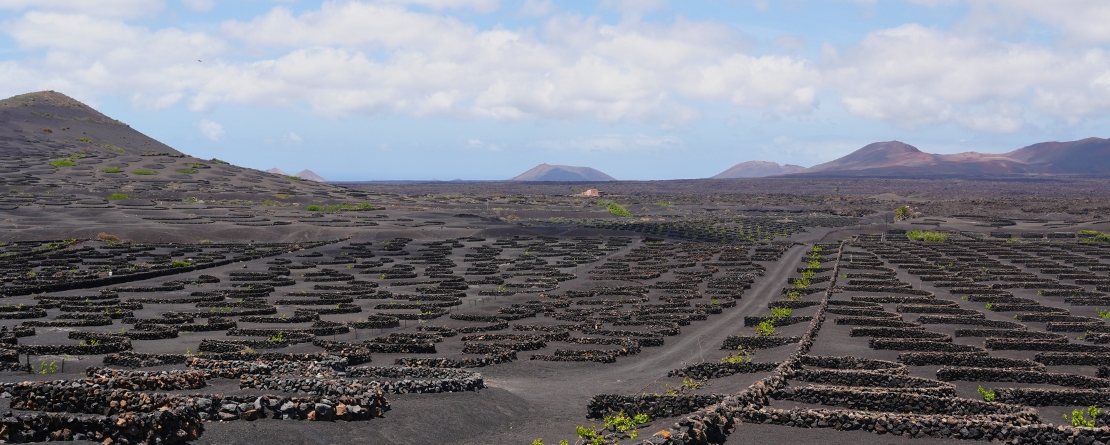
Vine pits in La Geria, Lanzarote—an ingenious system where volcanic stones protect each plant and harvest moisture from the air. ©Lis Sánchez
On the arid island of Lanzarote, where black volcanic fields evoke a lunar landscape, farmers have developed a striking agricultural system. Using volcanic lapilli (enarenado) and sea sand (jable) to capture moisture and protect the soil, they grow grapes, sweet potatoes, and legumes. This approach sustains biodiversity, livelihoods and cultural heritage in one of Europe’s driest regions, largely without irrigation
Global Importance
Lanzarote’s dryland agricultural system offers an outstanding example of traditional adaptation to extreme environmental conditions. In a region with less than 150 mm of annual rainfall and frequent droughts, communities have developed and sustained a method of moisture capture and retention that enables food production without irrigation. The use of volcanic lapilli (picón) and sea sand mulching conserves soil humidity and protects the soil from erosion, excessive salinity, and sun exposure. Stone-walled pits, known as socos, shield the plants from harsh winds, ensuring their survival in this harsh climate. Honed over centuries, these practices contribute to global discussions on sustainable land use, desertification prevention, and agriculture in water-scarce ecosystems. As climate change intensifies, the Lanzarote model offers valuable insights for arid land farming worldwide.
Food and Livelihood Security
Despite the aridity, this system ensures the continuous cultivation of key crops such as grapevines, figs, onions, legumes, and cereals. These provide both essential food for local communities and income through commercial production. The nomination was consciously developed to reflect this duality, including traditional export products such as wine and staple crops rooted in the campesino diet. Agricultural production is closely tied to family economies and is supported by agrotourism, local processing, and gastronomic traditions. The wine sector, particularly the internationally recognized Malvasía Volcánica variety, offers value-added opportunities for smallholders. Farmers have adapted planting strategies and harvest cycles to unpredictable rainfall and strong winds, using low-input methods that reduce costs and reliance on external resources. By sustaining agricultural activity in an otherwise challenging environment, the system contributes to food security and rural resilience.
Agrobiodiversity
Lanzarote’s system supports a select yet highly adapted range of crops suited to dry conditions, including drought-tolerant grapevines, heritage cereals such as maize and barley, local fig varieties, sweet potatoes, and pulses. These are often grown from saved seeds and landraces shaped by generations of selection in arid environments. Genetic analyses have shown that Lanzarote’s grape varieties are markedly distinct from their continental counterparts, a uniqueness preserved in part because the island, unlike most of Europe, never required grafting onto American rootstock. Traditional pruning methods and cultivation techniques adapted to volcanic soils further enhance resilience to salinity and wind. Alongside cultivated species, native and endemic flora are conserved on the edges of fields and terraces, supporting pollination and ecological balance
Local and Traditional Knowledge Systems
Agriculture in Lanzarote is shaped by deep empirical knowledge passed down across generations. Farmers understand the behavior of volcanic soils, humidity cycles, and microclimatic variations and apply this to crop placement, planting depth, and harvest timing. Techniques such as the semicircular stone walls (zocos) to shield individual vines from wind, or the careful layering of picón and soil to trap nighttime dew, demonstrate a refined adaptation to the island’s unique geology and climate. These knowledge systems are dynamic, supported by oral transmission, family labor, and local experimentation. In recent years, they have also been shared through cooperatives, schools, and farmer-led innovation initiatives.
Cultures, Value Systems and Social Organizations
Lanzarote’s agricultural system is deeply embedded in the island’s cultural identity and environmental vision. A long-standing water culture has shaped traditional systems for capturing, channeling, and storing scarce rainfall across the territory. The influence of artist César Manrique is reflected in strict landscape protection policies that preserve traditional architecture and limit visual pollution, while concentrating tourism in coastal urban areas to safeguard the rural interior. The island’s designation as both a UNESCO Biosphere Reserve and a UNESCO Global Geopark further attests to its exceptional environmental stewardship. These elements, together with farmer cooperatives, wine guilds, and local associations, help maintain infrastructure, reinforce collective memory, and pass on a land ethic grounded in resilience, respect for nature, and intergenerational responsibility.
Landscapes and Waterscapes Features
The Lanzarote agricultural landscape is a living expression of human adaptation to an arid, volcanic environment. Terraced slopes, crater-like vineyard depressions, and carefully aligned fields of lapilli create a harmonious integration of natural topography and cultivated space. These landscapes have a dual role: they are productive systems and cultural monuments. Stone walls, windbreaks, and soil conservation structures also support ecological functions such as water retention, erosion control, and biodiversity corridors. The agricultural zones of Lanzarote are intimately tied to volcanic events and geological features, which are not obstacles but allies in production. Their preservation is essential to sustaining both heritage and ecosystem function.
Proposal
Coming soon!
Multimedia
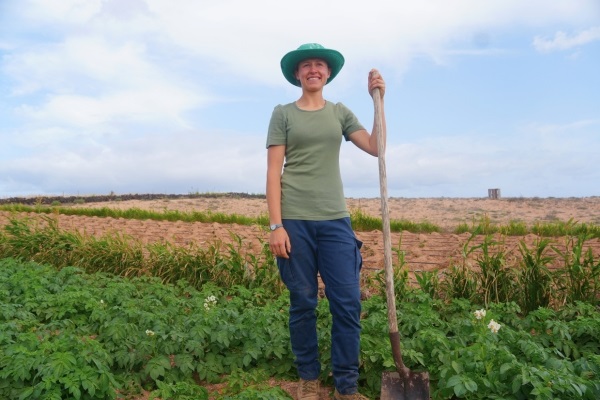
Photos
Flickr Album: Agricultural Systems in Jable and Volcanic Sands in Lanzarote Island, Spain
16/05/2025
Lanzarote’s dryland agricultural system offers an outstanding example of traditional adaptation to extreme environmental conditions. In a region with...
Video
From ash to harvest: Lanzarote’s journey of living heritage, Spain
21/05/2025
On the arid island of Lanzarote, farmers have developed a unique system using volcanic lapilli and sea sand to trap moisture and protect the soil. Grapes,...
Highlights
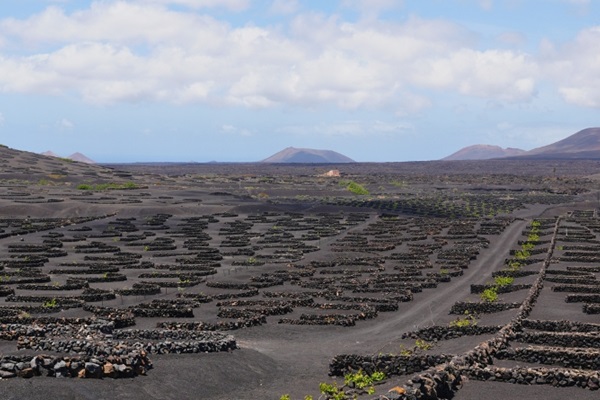
Six new sites recognized as Globally Important Agricultural Heritage Systems
21/05/2025
